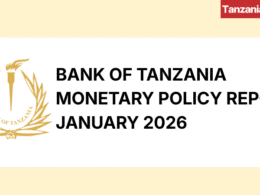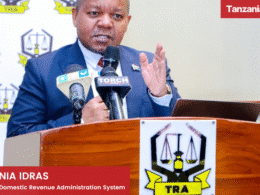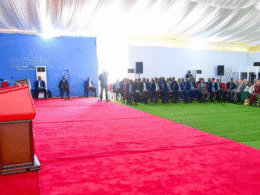Roche announced today a partnership with Kilimanjaro Christian Medical Centre (KCMC) and Philipps-University Marburg to strengthen diagnostics infrastructure and capacity in Moshi in northeastern Tanzania.
The three-year partnership is co-financed by the Deutsche Investitions- und Entwicklungsgesellschaft (DEG), a Development Finance Institution and a subsidiary of KfW Group, from public funds of the German Federal Ministry for Economic Cooperation and Development.
The collaboration aims to create a state-of-the-art diagnostics center of excellence through driving sustainable capacity building, infrastructure optimization, and establishing the necessary skill sets at KCMC to meet local needs.
The COVID-19 pandemic has highlighted the value of diagnostics in future-proofing health systems and this project is a step toward a laboratory facility that will bring reliable and timely diagnostics in communicable diseases including SARS-CoV-2, Tuberculosis, and HIV as well as in non-communicable diseases such as diabetes amongst others.
The diagnostics center of excellence will drive improved disease management and develop local capabilities to meet the changing healthcare needs in Moshi.
“Diagnostic testing is a fundamental component in disease prevention and management. With a history of over 70 years in Africa, Roche is uniquely positioned to offer expertise in diagnostics infrastructure, systems optimization, and process harmonization. These are critical to scaling up testing in Africa and ultimately provide patients with improved quality of life”, says Allan Pamba, Africa Network Lead, Roche Diagnostics.
With this project, KCMC will be able to provide improved diagnostics with a broader range of lab tests including those previously sent abroad and shortened turnaround times for lab results.
The project will also support capacity building by training of laboratory scientists, technologists, phlebotomists and biomedical engineers.
“Non-communicable diseases are the second health burden (after infectious diseases) in Sub-Saharan Africa (SSA). More people die of cardiovascular, pulmonary disease, diabetes, chronic kidney disease, and cancers in SSA than in the northern hemisphere. Laboratory diagnostics is an important pillar in identifying these patients early, monitoring their treatments and developing preventive strategies. The new Centre of Excellence will provide a novel solution to help tackle this important global health problem in northern Tanzania and beyond”, says Prof. Dr. Harald Renz, Director Institute of Laboratory Medicine, Philipps-University Marburg and President of the German Society of Laboratory Medicine (DGKL).
“Germany has a longstanding government-to-government cooperation with Tanzania in the health sector, particularly on mother-child care. I am glad, that we can add today a public-private partnership with Roche, financed through the DEG, a subsidiary of KfW development bank, that will boost laboratory capacities at KCMC in Moshi, a leading hospital in the country,” says Mrs. Regine Hess, German Ambassador to Tanzania.











